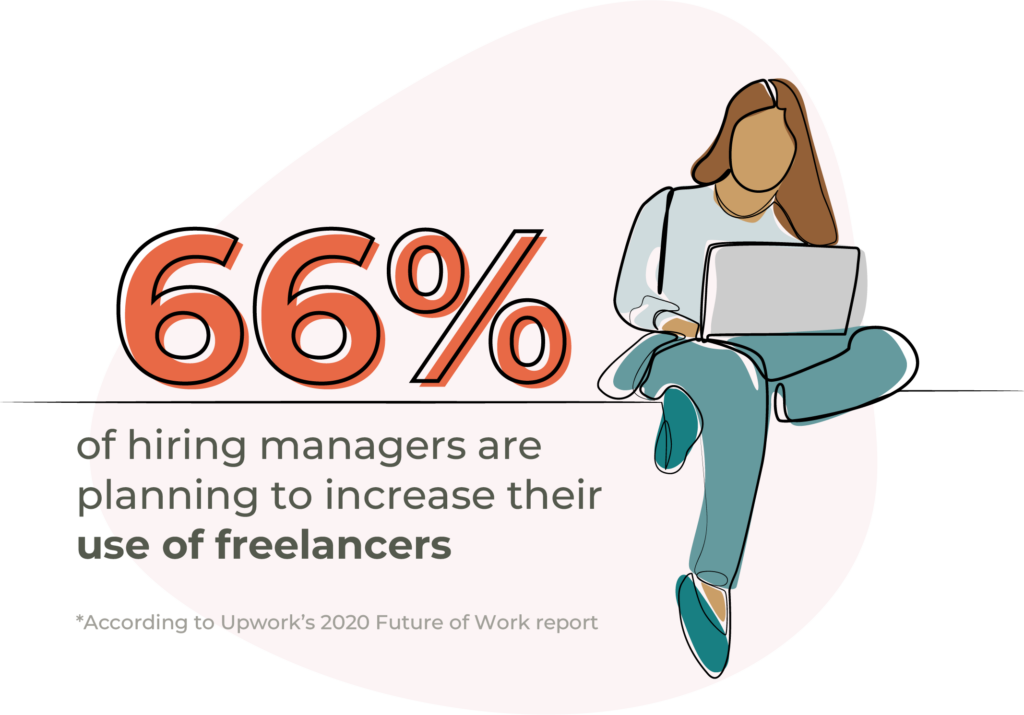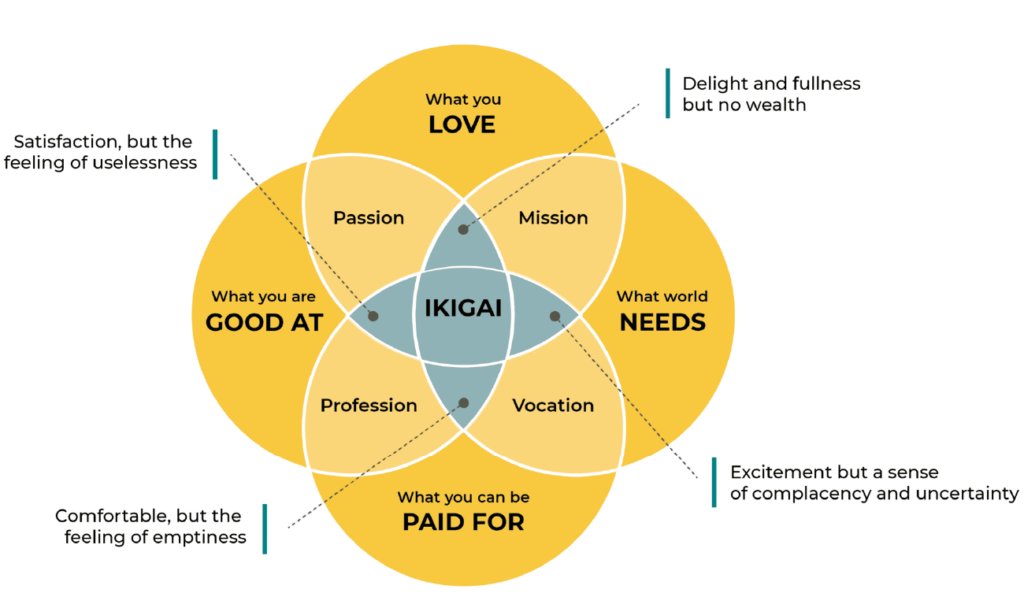Ben Legg
The world of work is changing, fast. The accelerated pace of change, arrival of remote working, plus the rapid penetration of artificial intelligence (AI) into white collar work, have driven both employers and professionals to constantly evaluate their approach to organisational design and getting work done. So what does this mean for the future of our careers? And those of future generations?
For employers, the rapid pace of change in the world means that you need to staff up good ideas, shut down bad ideas, and restructure org charts at lightning speed. This is making the traditional employment model – of trying to get everything done with a rigid org structure and permanent employees – much too slow, expensive and high risk. Productivity tools such as Slack, Zoom, Calendly and Asana are enabling more flexible working and collaboration. Artificial intelligence (AI) is making many activities redundant.
In parallel, workers are also concluding they they don’t want the same things that their parents did in a career. The concept of a “career for life” has long fallen out of fashion, and these days so is having only one permanent job at a time – as evidenced in a recent Forbes survey, which showed that 71% of high performers (and 50% of all workers) plan on launching a portfolio career. There is an increased desire for variety, flexibility, autonomy and multiple income streams.

Pre-lockdown, most established companies were assuming way too much work needed to be done by in-house, permanent employees. Then the pandemic hit and businesses were forced to become more agile, reducing permanent headcount while adopting remote operating models. What they discovered through this process was that getting things done through fractional workers was faster and more efficient, provided access to great talent from around the world, reduced fixed costs and provided greater strategic flexibility – and so the portfolio career revolution was accelerated.
Given this momentum, professionals are realising in increasing numbers that a portfolio career is not only possible, it is preferable. Portfolio careers help you earn more, serve clients globally, give you more flexibility and autonomy and reduce income risk through diversification.
So you may be asking yourself, what does this mean for my career? And that of my kids?
The end of the linear career

The cold hard truth is that having one permanent role with no other sources of income is becoming incredibly risky for professionals and their families. No jobs are safe any more, and if you lose your job it may take a few months (or years) with no income before you land the next one. Even worse, you might find that your skillset has become obsolete.
When a company hires you full-time, they do so because you provide a service that they need for at least 40 hours per week, for which you are well qualified. You’re a resource, and as soon as the workload drops, is outsourced or requires a different skillset (or technology) you’re no longer needed, and you will be discarded. For older generations, this is seen as unethical, especially if you’ve given years of loyal service to that organisation. In reality, the old way of working created a lot of underemployed generalists, developing their skills at a slow pace and being unaware of what was happening outside of the organisation. Paying you a high salary 365 days a year only makes sense if you are doing world class, necessary work – for which you are the perfect fit – every hour of every day. Given rapid changes in company strategy, priorities and technologies used, this old approach is making less and less sense.
The OECD forecasts that by 2030 half of all professionals will have portfolio careers. What does this mean for how you manage your career? Put simply, you own it, from start to finish. You – not your employer – need to develop your:
- Strategy. Keep your finger on the pulse. Work out how society and industries are changing, what new skills will be in demand and which ones you will master.
- Learning plan. Be proactive about upskilling yourself. Develop those skills, through a combination of formal training and on-the-job learning – likely funding most of your education yourself.
- Network. Make building the size, quality and relevance of your network a daily activity. That is where most future opportunities and collaborators will come from.
- Personal brand. Develop a personal story and brand, explaining how you intend to make a positive difference to the world (and your potential clients). Then ensure this is clearly communicated online in all the right places.
- Intellectual property. Become a thought leader. Develop your own intellectual property – to monetise yourself at a higher rate.
Before the pandemic, portfolio careers were typically limited to certain professions (e.g. creatives) or seniority levels (e.g. ex-CEOs). Now, this path is open to anyone, including a lot of self-sufficient workers who are taking advantage of the booming gig economy to launch a one-person business or spin up a side hustle.
How our motivations have changed
Why people work has been changing too. Even before the pandemic, the typical amount of time a Millennial spent in a role was roughly two years. These days, workers want to enjoy their jobs, and that means less concern around corporate packages and progression and more around personal branding, transferable skills and network building. This is a huge shift from previous generations, which is why it’s taken a while for employers to catch on.

Our corporate role models have shifted as well. Big corporate CEOs are now seen as dinosaurs and/or villains, while the heroes of industry are entrepreneurs and thought leaders. Nowadays, if you want to hire great talent, you’re more likely to find someone who takes a job because they’re interested in starting their own business and either:
1) wants to learn as much as possible to inform their own business,
or
2) just wants to pay the bills while planning their own business.
Being a loyal corporate employee just isn’t on the agenda anymore.
So how do employers attract this sort of footloose talent? One approach gaining traction is to offer an “academy” approach: employees provide time and service whilst employers help them them develop the transferable skils, personal brand and power network they need to launch their own business. Successful employers have always known that part of their value proposition to potential new hires was the quality of career they would have after they have moved on.
The arrival of work-as-a-service
Long before the pandemic, we were already seeing full-time jobs being replaced by the gig economy in many areas with discrete tasks such as driving, delivery, cleaning, logo design, market research, training courses and more. Why hire a person full-time when you can just pay for a specific task to be done? This mindset has now expanded to cover more complex professional work.
For businesses, the pandemic and lockdown were a crash course in remote collaboration and productivity improvements. Companies learned that employees don’t need to be in the office to be productive, that you don’t need to hire locally, that employees prefer flexibility and that you can shape company culture remotely. You can also hire external professionals – at short notice – to get complex work done without needing a long-term contract.

In 2020, 47% of hiring managers said they intended to increase the use of freelancers. By the end of 2022 – according to Upwork’s 2022 Future of Work report – 66% of hiring managers are planning to increase their use of freelancers. In other words, there’s a rapidly growing opportunity for people to launch portfolio careers.
A more globalised workforce creates opportunities and threats
Today, the workplace is far more virtual than it’s ever been, and that’s allowed for new work opportunities on a global scale. You no longer have to live within a 60-minute commute from the office; you just need a strong internet connection and a productive workspace.

You can live in New York and serve a client in Berlin, or vice versa. Or maybe move to a Greek island. Over half my clients are in the US, and I serve them from London. That opens up a whole new world of possibilities and threats. The global opportunities are endless. If you can become world class at something and build your personal brand, then you can work for clients all over the world and charge a premium. On the other hand, if you have mediocre skills and fail to differentiate yourself, you may get undercut by cheaper labour or those using AI more effectively. This new world of work is set to get highly competitive ….
From the employer perspective, working with portfolio professionals offers access to a huge new talent pool. Why only hire talent that lives in San Francisco and needs to earn $250k per year to survive? Now you can hire talent from anywhere in the world and only pay them for the deliverables required.
Finding your purpose
Portfolio careers allow you to combine what you’re passionate about with what you can get paid to do. Can you find the right combination of doing what you are good at, what you love, what the world needs and what you can get paid for? We find the following framework – created by entrepreneur Marc Winn who was inspired by the Japanese concept of Ikigai on his quest for purpose – essential in helping portfolio professionals create focus and momentum.

Will you survive and thrive?
Going forward, nothing is certain. Economies change. Technologies change. Business models change. You change. What matters most is continually adapting and staying ahead of those changes, and building a career that helps you achieve you key goals at each stage of your life.
Want to learn more about portfolio careers? Read What is a portfolio career?
The Portfolio Collective is a global community of portfolio professionals. We make portfolio careers less complex and less lonely.
Think this sounds like the right path for you? Come along to our monthly Community Welcome Call for new members to find out what a portfolio career could look like and how The Portfolio Collective can help you take those first steps towards professional success – and don’t forget to connect with our community!




8 responses to “The future of careers”
It is remarkable, very much the helpful information
It is a pity, that I can not participate in discussion now. I do not own the necessary information. But this theme me very much interests.
I can not take part now in discussion – there is no free time. I will be free – I will necessarily express the opinion.
It cannot be!
It to me is boring.
https://elegantexteriorhpl.com/pars/
This is a top-grade idea. I’m interested in getting guidance.
Hi Olugbenga, if you’re interested in getting more guidance, we recommend watching our Introduction to Portfolio Careers video with our CEO Ben, which you can watch here: https://youtu.be/4nkdLSIhoyI Also, come along to our Welcome Call! They take place every Wednesday at 4pm (UK time) and are a great way to find out more about TPC!
Hello interesting focus here. Very interested to learn more.
Hi Florence, we have loads of resources to help you learn more! We recommend our CEO Ben’s Introduction to Portfolio Careers video as a good starting point – you can check it out here: https://youtu.be/4nkdLSIhoyI . We also have lots of resources on the ‘Learn’ tab of our website, and lots of events and workshops which can help you learn more! Our Welcome Call is a great way to het to know more about what we’re doing here at TPC it’d be great to see you there!
I am an agriculture graduate, working on Sustainable Agriculture since 2012. Do you think there are opportunities as a consultant?
Hi Shrinivas, great to hear from you! Sustainability is so important for all businesses there’s definitely a need for sustainability consultants! Our focus workshop, which takes place every Thursday at 4pm, might be a great place to get some ideas on how to get started and how to position yourself as a consultant. If you’d like to sign up, the link is: https://portfolio-collective.com/events/portfolio-career-focus-workshop/ – we’d love to see you there!